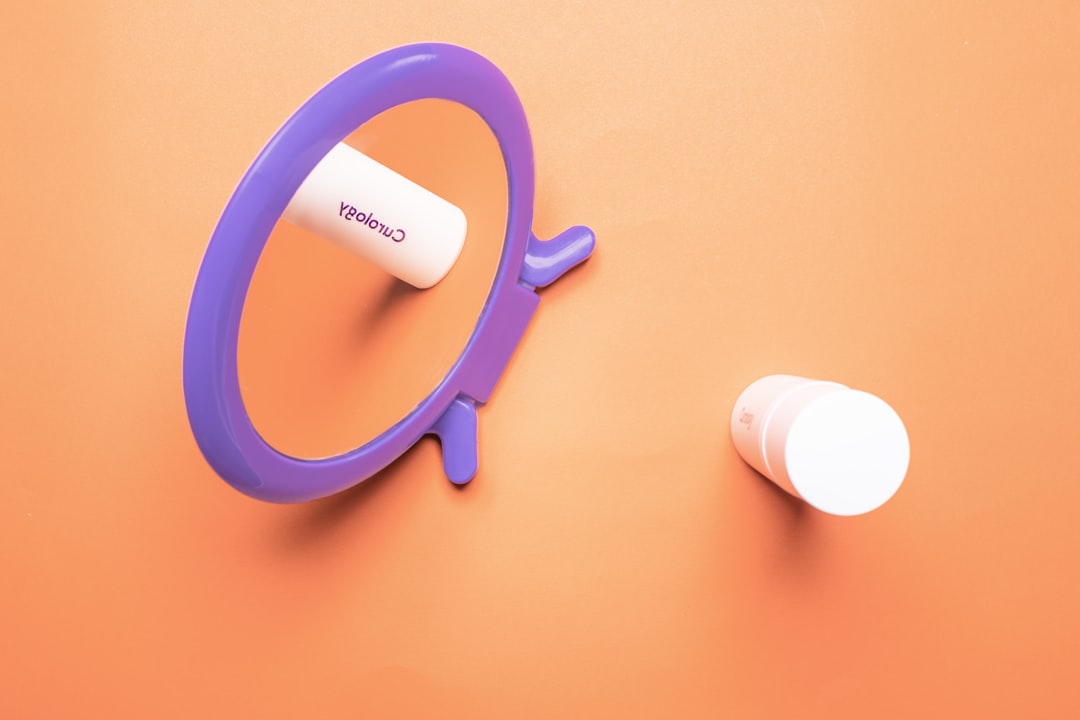
Top Hair and Skin Vitamins for a Glowing Look
Maintaining healthy hair and skin is a goal for many people, and one way to achieve this is by incorporating vitamins into your daily routine. Vitamins play a crucial role in the health and appearance of our hair and skin. They provide essential nutrients that promote growth, repair damage, and protect against environmental stressors. By ensuring that we are getting an adequate intake of vitamins, we can support the overall health and vitality of our hair and skin.
Key Takeaways
- Vitamins are important for maintaining healthy hair and skin.
- Vitamin A is anti-aging and promotes healthy hair growth.
- Vitamin C is an antioxidant that helps with radiant skin and strong hair.
- Vitamin D is essential for healthy hair and skin and is obtained from sunlight.
- Vitamin E is moisturizing and promotes smooth skin and shiny hair.
Vitamin A: The Anti-Aging Vitamin for Skin and Hair
Vitamin A is known for its anti-aging properties and its ability to promote healthy skin and hair. It helps to stimulate the production of collagen, which is essential for maintaining the elasticity and firmness of the skin. This can help to reduce the appearance of fine lines and wrinkles, giving the skin a more youthful appearance.
In addition to its anti-aging benefits, vitamin A also plays a role in promoting healthy hair growth. It helps to regulate the production of sebum, which is the natural oil that moisturizes the scalp and keeps the hair follicles healthy. This can help to prevent dryness and breakage, leading to stronger, shinier hair.
Sources of vitamin A include foods such as carrots, sweet potatoes, spinach, and kale. It is also found in animal products such as liver, eggs, and dairy. The recommended daily intake of vitamin A varies depending on age and gender, but generally ranges from 700 to 900 micrograms for adults.
Vitamin C: The Antioxidant Vitamin for Radiant Skin and Strong Hair
Vitamin C is well-known for its antioxidant properties, which help to protect the skin from damage caused by free radicals. Free radicals are unstable molecules that can cause oxidative stress, leading to premature aging and damage to the skin cells. By neutralizing these free radicals, vitamin C helps to promote a more radiant and youthful complexion.
In addition to its antioxidant benefits, vitamin C also plays a role in collagen synthesis. Collagen is a protein that provides structure and support to the skin, helping to maintain its firmness and elasticity. By promoting collagen production, vitamin C can help to improve the overall health and appearance of the skin.
Sources of vitamin C include citrus fruits, strawberries, bell peppers, and broccoli. The recommended daily intake of vitamin C is 75 to 90 milligrams for adults, although higher doses may be beneficial for certain individuals.
Vitamin D: The Sunshine Vitamin for Healthy Hair and Skin
| Benefits of Vitamin D | Recommended Daily Intake | Sources of Vitamin D |
|---|---|---|
| Helps maintain healthy bones and teeth | 600-800 IU | Sunlight, fatty fish, egg yolks, fortified foods |
| Boosts immune system | 600-800 IU | Sunlight, fatty fish, egg yolks, fortified foods |
| May reduce risk of certain cancers | 600-800 IU | Sunlight, fatty fish, egg yolks, fortified foods |
| May improve mood and reduce depression | 600-800 IU | Sunlight, fatty fish, egg yolks, fortified foods |
| May improve skin health and reduce acne | 600-800 IU | Sunlight, fatty fish, egg yolks, fortified foods |
Vitamin D is often referred to as the “sunshine vitamin” because our bodies can produce it when our skin is exposed to sunlight. It plays a crucial role in the health of our hair and skin by promoting cell growth and repair.
One of the key benefits of vitamin D for the skin is its ability to regulate the production of sebum. This can help to prevent acne breakouts and keep the skin moisturized. Vitamin D also has anti-inflammatory properties, which can help to calm irritated skin and reduce redness.
In terms of hair health, vitamin D is essential for promoting healthy hair follicles. It helps to stimulate hair growth and prevent hair loss by supporting the production of new hair cells. Adequate levels of vitamin D have also been linked to a reduced risk of conditions such as alopecia areata, which causes patchy hair loss.
Sources of vitamin D include sunlight, fatty fish such as salmon and mackerel, fortified dairy products, and egg yolks. The recommended daily intake of vitamin D varies depending on age and gender, but generally ranges from 600 to 800 international units (IU) for adults.
Vitamin E: The Moisturizing Vitamin for Smooth Skin and Shiny Hair
Vitamin E is known for its moisturizing properties, making it a popular ingredient in skincare and haircare products. It helps to lock in moisture and protect the skin and hair from damage caused by environmental stressors.
One of the key benefits of vitamin E for the skin is its ability to neutralize free radicals. This can help to prevent oxidative stress and reduce the signs of aging, such as wrinkles and age spots. Vitamin E also has anti-inflammatory properties, which can help to soothe irritated skin and reduce redness.
In terms of hair health, vitamin E helps to improve blood circulation to the scalp, which promotes healthy hair growth. It also helps to repair damage to the hair follicles and strengthen the hair shaft, leading to smoother, shinier hair.
Sources of vitamin E include nuts, seeds, vegetable oils, and leafy green vegetables. The recommended daily intake of vitamin E is 15 milligrams for adults.
Vitamin B Complex: The Essential Vitamins for Strong and Healthy Hair
The B vitamins are a group of vitamins that play a crucial role in maintaining the health of our hair. They help to promote healthy hair growth by supporting the production of new cells and providing essential nutrients to the hair follicles.
One of the key benefits of the B vitamins for hair health is their ability to prevent hair loss. They help to strengthen the hair follicles and promote the growth of new hair cells, reducing the risk of thinning or balding.
In addition to their benefits for hair health, the B vitamins also play a role in maintaining healthy skin. They help to regulate oil production, which can prevent acne breakouts and keep the skin moisturized. The B vitamins also support collagen production, helping to maintain the firmness and elasticity of the skin.
Sources of B vitamins include whole grains, meat, fish, eggs, and leafy green vegetables. The recommended daily intake of B vitamins varies depending on the specific vitamin, but generally ranges from 1.3 to 2.4 micrograms for adults.
Vitamin K: The Vitamin for Brightening Dark Circles and Stretch Marks
Vitamin K is often overlooked when it comes to skincare, but it plays a crucial role in maintaining the health and appearance of our skin. It helps to promote blood clotting, which can reduce the appearance of dark circles under the eyes and minimize the appearance of stretch marks.
One of the key benefits of vitamin K for the skin is its ability to improve circulation. This can help to reduce puffiness and dark circles under the eyes, giving the skin a more refreshed and youthful appearance. Vitamin K also has anti-inflammatory properties, which can help to calm irritated skin and reduce redness.
In addition to its benefits for the skin, vitamin K also plays a role in maintaining healthy hair. It helps to strengthen the hair follicles and promote healthy hair growth, reducing the risk of thinning or balding.
Sources of vitamin K include leafy green vegetables, such as kale and spinach, as well as broccoli and Brussels sprouts. The recommended daily intake of vitamin K varies depending on age and gender, but generally ranges from 90 to 120 micrograms for adults.
Zinc: The Mineral for Clear Skin and Strong Hair
Zinc is a mineral that plays a crucial role in maintaining the health of our hair and skin. It helps to regulate oil production, which can prevent acne breakouts and keep the skin moisturized. Zinc also has anti-inflammatory properties, which can help to calm irritated skin and reduce redness.
In terms of hair health, zinc is essential for promoting healthy hair growth. It helps to regulate the production of sebum, which moisturizes the scalp and keeps the hair follicles healthy. This can help to prevent dryness and breakage, leading to stronger, healthier hair.
Sources of zinc include oysters, beef, poultry, nuts, and seeds. The recommended daily intake of zinc varies depending on age and gender, but generally ranges from 8 to 11 milligrams for adults.
Iron: The Mineral for Preventing Hair Loss and Promoting Skin Health
Iron is a mineral that is essential for maintaining the health of our hair and skin. It helps to transport oxygen to the hair follicles and skin cells, promoting healthy growth and repair.
One of the key benefits of iron for hair health is its ability to prevent hair loss. Iron deficiency can lead to a condition called iron-deficiency anemia, which can cause hair loss. By ensuring that we are getting an adequate intake of iron, we can support the growth and strength of our hair.
In terms of skin health, iron helps to promote a healthy complexion by supporting the production of collagen. Collagen is a protein that provides structure and support to the skin, helping to maintain its firmness and elasticity. By promoting collagen production, iron can help to improve the overall health and appearance of the skin.
Sources of iron include red meat, poultry, fish, beans, and leafy green vegetables. The recommended daily intake of iron varies depending on age and gender, but generally ranges from 8 to 18 milligrams for adults.
Incorporating Hair and Skin Vitamins into Your Daily Routine
Incorporating vitamins into your daily routine is an important step in maintaining the health and appearance of your hair and skin. Vitamins provide essential nutrients that promote growth, repair damage, and protect against environmental stressors.
To incorporate vitamins into your daily routine, start by focusing on a balanced diet that includes a variety of fruits, vegetables, whole grains, lean proteins, and healthy fats. This will help to ensure that you are getting a wide range of vitamins and minerals that support the health of your hair and skin.
In addition to a healthy diet, consider taking a daily multivitamin or specific vitamin supplements to ensure that you are getting an adequate intake of vitamins. However, it is important to consult with a healthcare professional before starting any new vitamin regimen, as they can help to determine the appropriate dosage and ensure that it is safe for you.
Remember, consistency is key when it comes to incorporating vitamins into your daily routine. It may take some time to see the full benefits, so be patient and stick with it. With time and dedication, you can achieve healthy, vibrant hair and skin.
FAQs
What are hair and skin vitamins?
Hair and skin vitamins are supplements that contain essential nutrients that promote healthy hair and skin. These vitamins can be taken orally or applied topically.
What are the benefits of taking hair and skin vitamins?
Taking hair and skin vitamins can help improve the overall health and appearance of your hair and skin. They can help strengthen hair, reduce hair loss, promote hair growth, and improve skin texture and elasticity.
What are some common hair and skin vitamins?
Some common hair and skin vitamins include biotin, vitamin C, vitamin E, vitamin D, and omega-3 fatty acids.
Can hair and skin vitamins cause any side effects?
Hair and skin vitamins are generally safe to take, but they can cause side effects in some people. Common side effects include upset stomach, diarrhea, and skin rash. It is important to follow the recommended dosage and consult with a healthcare professional before taking any supplements.
Can hair and skin vitamins replace a healthy diet?
Hair and skin vitamins should not replace a healthy diet. While they can provide additional nutrients that may be lacking in your diet, it is important to maintain a balanced and nutritious diet to promote overall health and wellness.


















